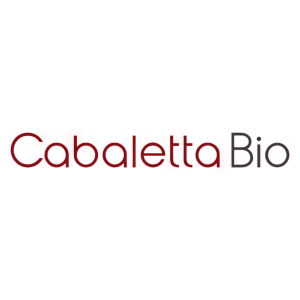Welcome to our dedicated page for Cabaletta Bio news (Ticker: CABA), a resource for investors and traders seeking the latest updates and insights on Cabaletta Bio stock.
Cabaletta Bio, Inc. (Nasdaq: CABA) is a clinical-stage biotechnology company pioneering engineered T cell therapies for autoimmune diseases. This page serves as the definitive source for official updates on clinical trials, research advancements, and corporate developments related to their innovative CAART and CARTA platforms.
Investors and researchers will find curated press releases detailing progress across multiple Phase 1/2 trials targeting conditions including lupus, myositis, and pemphigus vulgaris. Our collection features updates on therapeutic mechanisms that selectively eliminate pathogenic B cells while preserving healthy immune function.
The resource covers essential developments including trial design innovations, manufacturing process improvements, and strategic collaborations. All content is rigorously verified to ensure accuracy in reporting on this cutting-edge approach to autoimmune treatment.
Bookmark this page for streamlined access to Cabaletta Bio's latest milestones in developing potentially curative therapies. Check regularly for updates on clinical programs demonstrating the company's commitment to transforming autoimmune disease management.
Cabaletta Bio, Inc. (Nasdaq: CABA) announced a late-breaking presentation at the 31st EADV Congress, scheduled from September 7-10, 2022, in Milan, Italy. The presentation will focus on new clinical data from cohorts A4 and A5 of the DesCAARTes™ trial, which investigates DSG3-CAART therapy for mucosal-dominant pemphigus vulgaris. Dr. David J. Chang will present preliminary findings on September 10, 2022. Additionally, Dr. Aimee Payne will discuss CAAR T cell advancements on September 9, 2022. The trial aims to determine the maximum tolerated dose and evaluate safety and efficacy of DSG3-CAART.
Cabaletta Bio (CABA) reported its financial results for Q2 2022, revealing R&D expenses of $9.5 million, up from $7.9 million in Q2 2021. General and administrative expenses increased slightly to $3.5 million from $3.3 million. As of June 30, 2022, the company held $96.8 million in cash, down from $122.2 million at year-end 2021, but still sufficient to support operations through Q1 2024. The company is advancing its DesCAARTes™ trial and expects to present significant clinical data at the upcoming EADV Congress in September 2022.
Cabaletta Bio, Inc. (Nasdaq: CABA) presented updated clinical data from its DesCAARTes™ trial at the ASGCT Annual Meeting. The interim data, involving 12 treated subjects across four cohorts, demonstrated a favorable safety profile for DSG3-CAART with no dose-limiting toxicities. Notably, a dose-dependent increase in persistence of DSG3-CAART cells was observed. The trial aims to escalate dosages while assessing the relationship between cell persistence and clinical response in patients with mucosal-dominant pemphigus vulgaris (mPV). The company is planning additional cohorts to augment its research.
Cabaletta Bio, Inc. (Nasdaq: CABA), a clinical-stage biotech company, will have CEO Steven Nichtberger participate in a fireside chat at the H.C. Wainwright Global Investment Conference on May 24, 2022, at 11:00 a.m. ET in Miami, FL. This event will highlight the company's focus on developing targeted cell therapies for autoimmune diseases. Interested individuals can access a live webcast on the company's website, with replays available for 30 days after the event.
Cabaletta Bio (CABA) reported Q1 2022 financial results, revealing a net loss of $12.9 million, or $0.45 per share. Research and development expenses surged to $9.2 million, driven by ongoing clinical trials. The cash balance fell to $109.2 million from $122.2 million, expected to support operations until Q3 2023. Key advancements include progress in the DesCAARTes™ trial for mucosal pemphigus vulgaris and plans to initiate a first-in-human trial for MuSK-CAART in myasthenia gravis, following FDA Fast Track Designation.
Cabaletta Bio (Nasdaq: CABA) announced the presentation of data from its lead programs, DSG3-CAART and MuSK-CAART, at various scientific meetings in May 2022. The DSG3-CAART trial is currently in Phase 1, targeting mucosal pemphigus vulgaris. Presentations will showcase early cohort data and further characterization of DSG3-CAART cells. The MuSK-CAART program will include preclinical studies on myasthenia gravis. Key events are at the American Society of Gene & Cell Therapy and Society for Investigative Dermatology meetings.
Cabaletta Bio, a clinical-stage biotechnology company (Nasdaq: CABA), announced that Gwendolyn Binder, Ph.D., will present a pre-recorded session at the 21st Annual Needham Virtual Healthcare Conference.
This presentation will be available on-demand starting April 12, 2022, at 3:45 p.m. ET, and can be accessed via the company’s website, with replays available for 30 days. Cabaletta Bio focuses on developing targeted T cell therapies for autoimmune diseases, with a growing pipeline that includes treatments for conditions like pemphigus vulgaris and myasthenia gravis.
Cabaletta Bio, Inc. (CABA) reported its fourth quarter and full year 2021 financial results and provided a business update. The company ended 2021 with $122.2 million in cash, funding operations through Q3 2023. Significant advancements include the DesCAARTes™ trial, showing positive early results in cohorts, and the MuSK-CAART IND application cleared by the FDA with Fast Track Designation granted. Upcoming data presentations are scheduled for mid-2022, which are anticipated to provide insights into ongoing trials.
Cabaletta Bio has received Fast Track Designation from the FDA for its MuSK-CAART therapy, aimed at improving daily living and muscle strength in patients with MuSK antibody-positive myasthenia gravis (MG). The IND application was cleared, enabling a first-in-human clinical trial set to start in 2022 with approximately 20 patients. The trial will include dose escalation and cohort expansion. The therapy targets autoantibodies specifically, addressing a critical unmet need as current treatments have significant limitations.
Cabaletta Bio, a clinical-stage biotechnology company focused on targeted cell therapies for autoimmune diseases, announced that CEO Steven Nichtberger will join the Neuromuscular corporate panel at the Cowen Virtual 42nd Annual Health Care Conference on March 7, 2022, at 9:10 a.m. ET.
A live webcast will be accessible on the company's website, with replays available for 30 days. Cabaletta Bio's innovative CABA platform aims to develop therapies for conditions like pemphigus vulgaris and myasthenia gravis, positioning the company at the forefront of biotechnological advancements in autoimmune treatment.

